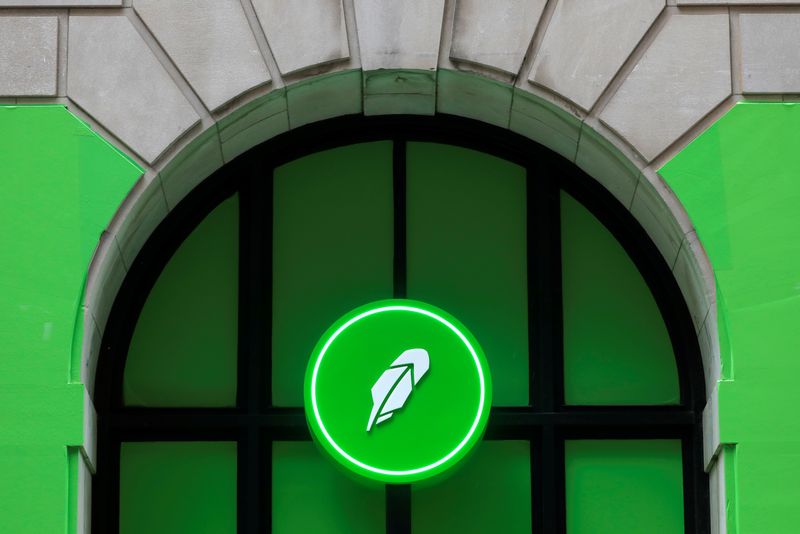By Manya Saini, Niket Nishant
(Reuters) -Robinhood said on Monday it will allow trading in U.S. presidential election event contracts, as it seeks to capitalize on growing retail demand for betting products.
This will offer users a chance to profit from speculation on the close contest between Vice President Kamala Harris and former President Donald Trump, with polls showing a narrow lead for Harris, but within the margin of error.
Shares of the trading platform rose 4% after the company said it would start rolling out the contracts to a limited number of users, who must be U.S. citizens, on Monday.
Event derivatives trading involves buying and selling contracts that allow traders to speculate on the outcome of specific events such as elections, economic data releases, or policy decisions.
Such derivatives, which are relatively new and generally considered highly risky, have gained traction in recent years.
"It's very, very difficult to conclude that a derivative tied to the outcome of an election, and marketed primarily to retail investors, is an investment," said Brian Bissonette, industry principal, investment banking at Intapp DealCloud.
But Henry Robinson, co-founder of Decimal Digital Currency, said Robinhood (NASDAQ:HOOD)'s move was "smart."
"As financial markets evolve and democratize, investors will grow to appreciate these kinds of very specific risk contracts," Robinson said.
PredictIt, a prediction market platform where users can buy and sell shares on the outcomes of future events, has also gained popularity in the lead-up to the election.
A federal judge ruled in September to allow Americans to use derivatives for event betting, marking a setback for the U.S. Commodity Futures Trading Commission, which had sought to block them. An appeals court upheld the order in October.
Robinhood introduced futures and index options trading features to its mobile app earlier this month.

The company, which became synonymous with mom-and-pop investors in 2021, is now aiming to evolve into a comprehensive financial services provider and compete with established brokerages catering to institutional clients.
It committed earlier this year to expanding margins and prioritizing "profitable growth" in 2024. Investor enthusiasm has fueled a year-to-date jump of more than 100% in the company's stock.